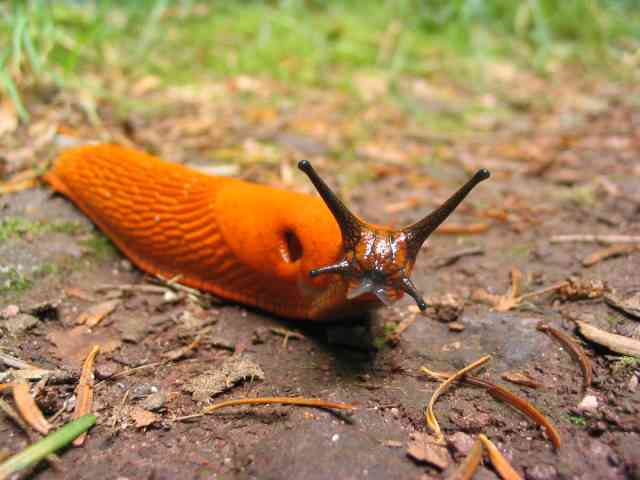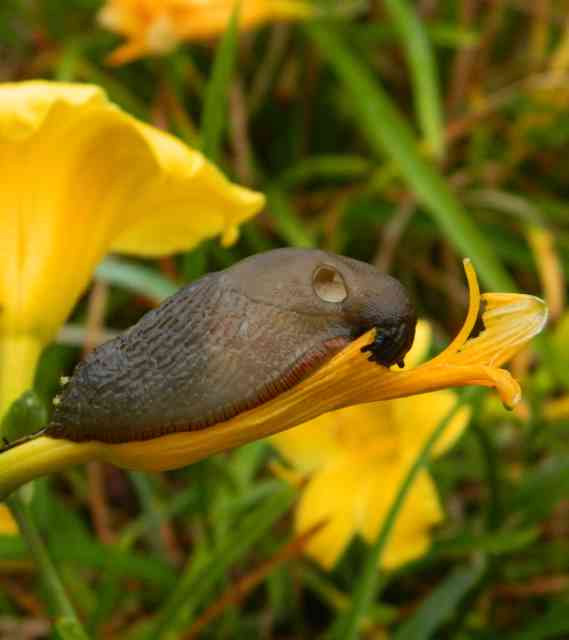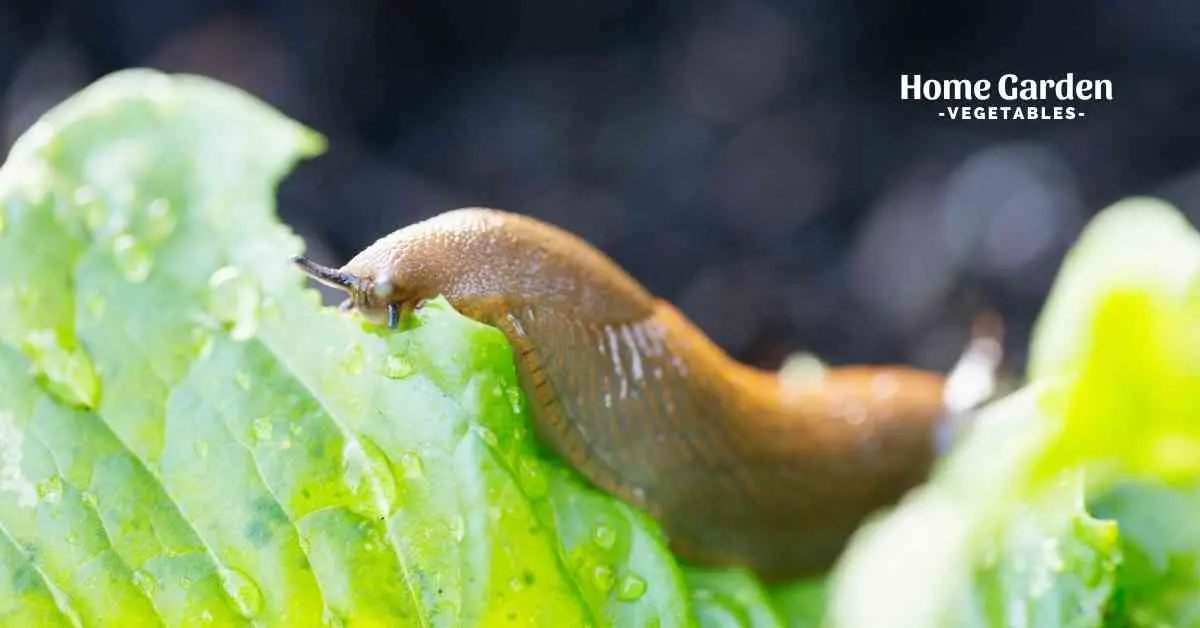Slugs are one of the most common garden pests that you’ll spot around your vegetable crops. Shiny mucus trails, holes in the leaves and decapitated seedlings are all signs that slugs have been sneaking around in your garden. They’ll eat both leaves and fruits, damaging your harvest to a great extent. It’s natural that you want them out of your garden! Although commercial slug killers are available in the market, they can be harmful to birds, beneficial insects and other wildlife. Instead of resorting to chemical means, there are plenty of organic slug control techniques you can try.

Which Plants Are Most At Risk?
Which plants should you worry about if you have slugs in the garden? As it turns out, slugs and snails will eat almost anything that comes in their way, be it fresh or decaying! However, lettuce, strawberries, zucchini, beans, pepper, basil and leafy greens are some of their favorite treats. Slugs are also fond of eating flowers, including marigolds, hostas, sunflowers and even succulents!
Reader Poll: What online courses would interest you?
9 Ways To Control Slugs Organically
Here are some of the most effective, tried-and-tested techniques you can use against slugs in your garden:
1. Coffee Grounds
Gardeners use all kinds of unusual tricks to get rid of slugs, coffee grounds being one of them. Coffee grounds are available in most homes. Instead of throwing them away, use them to drive away pests! Just spread some coffee grounds around the plants you want to protect and they’ll deter slugs and snails.
2. Beer Traps
Slugs are attracted to beer apparently. You can use this little detail to your advantage and create a beer trap for slugs and snails. Use a small container or purchase a specialized slug trap. Bury it into the ground such that the rim is at soil level or just a bit higher. Fill it with beer. Slugs will come after the beer at night and drown in it. Leave it for multiple nights. When there are lots of slugs in the container, empty them in your compost heap and start fresh if further treatment is necessary.
Subscribe to our newsletter!
3. Diatomaceous Earth
Diatomaceous earth is a finely ground substance created from fossil remains of diatoms is a non-toxic, organic control you can employ against slugs in your garden. At microscopic level, the powder is very sharp and the edges can pierce through the skin of slugs and dessicate their body if they cross over it. Sprinkle the powder around the plants you want to protect from slugs. However, once diatomaceous earth gets wet, like after a rainfall, it will lose its properties that are damaging to slugs. This means that you’ll have to reapply the powder after each rain for it to work.
4. Salt Spray
One of the most effective methods used by most gardeners is a homemade salt spray. Mix a generous serving of salt in water and add it to a sprayer bottle. Spraying this salt solution directly on the slugs will dessicate their body, eventually leading to death. However, you’ll need to do this at nightfall, since that’s when slugs are most active and that’s when it will be easier to spot them. Wash away the residual salt from the plants in the morning to prevent any damage.

5. Eggshells
Items with sharp edges, such as crushed eggshells or sea shells are also effective against slugs. Eggshells are easily available in most homes. Instead of throwing them away, just sprinkle them around the most vulnerable plants to create a physical barrier against slugs. If they try to cross it, their slimy, soft body will be punctured, resulting in their death.
6. Wool Waste
Wool waste is a by-product of wool manufacturing. This by-product is converted to pellets and used for a variety of different purposes in the garden. Other than acting as a long-lasting mulch and soil improvement product, it’s also a natural slug and snail repellent. Their fibers act as an irritant to the slugs. You can spread these around vulnerable plants and newly planted seedlings to keep the slugs away.
7. Calcium Spray
Spraying the plants with calcium chloride solution can keep the slugs away from the plants but won’t harm other wildlife. You’ll have to spray the plants after every rain for the treatment to be effective.
8. Copper Collars
Enclose seedlings and young plants in copper collars to protect them against slugs. Slugs will not cross a copper boundary. It’s believed that copper reacts with the slime that these creatures secrete, disrupting their nervous system and creating effects similar to that of an electric shock. However, if the plants get bigger and their foliage droops over the copper boundary, slugs may be able to get to them.
9. Organic Commercial Slug Baits
If home remedies aren’t working, you can purchase organic slug baits from garden centers. Products made from iron phosphate are typically certified for organic farmers. Though they are toxic to slugs, the material is non-toxic to humans, pets, birds, earthworms and other wildlife. Apply the product in the garden according to the instructions on tha package, preferably when the weather is dry because that’s when it will be most effective. Once the slugs consume the product, they will die.
Conclusion
So these were some tricks to control slugs organically in the garden. You can also introduce birds and other animals in the garden to keep down the slug population. If you keep chicken, you can let them roam freely in the garden, eating away slugs and other pests that come in their way.

